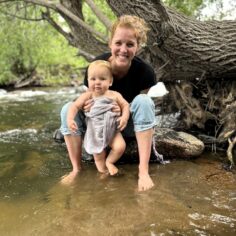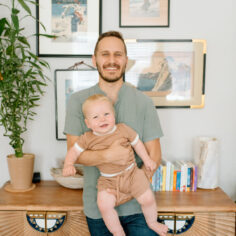Alicia LeClair and Owen Zinaman explore their insights into building a community of care.
By Alicia LeClair, Owen Zinaman on
Walking into a school building a little over three months after giving birth, my body still tender and bruised, a swirl of conflicting feelings churned in my stomach. Leaving our new son Ari for the afternoon to work with teachers and students on developing social emotional learning skills (a task I,
Alicia LeClair and Owen Zinaman explore their insights into building a community of care.
By Alicia LeClair, Owen Zinaman on
Walking into a school building a little over three months after giving birth, my body still tender and bruised, a swirl of conflicting feelings churned in my stomach. Leaving our new son Ari for the afternoon to work with teachers and students on developing social emotional learning skills (a task I, Alicia, had dedicated the last five years to with great passion) felt unnatural. I wanted to be home with this new, unbelievably precious being, present to the moment-to-moment miracle of his awakening to the world. Reverence for life had never been stronger in me, and while I knew my work in schools was important, it suddenly paled in comparison to being with my son.
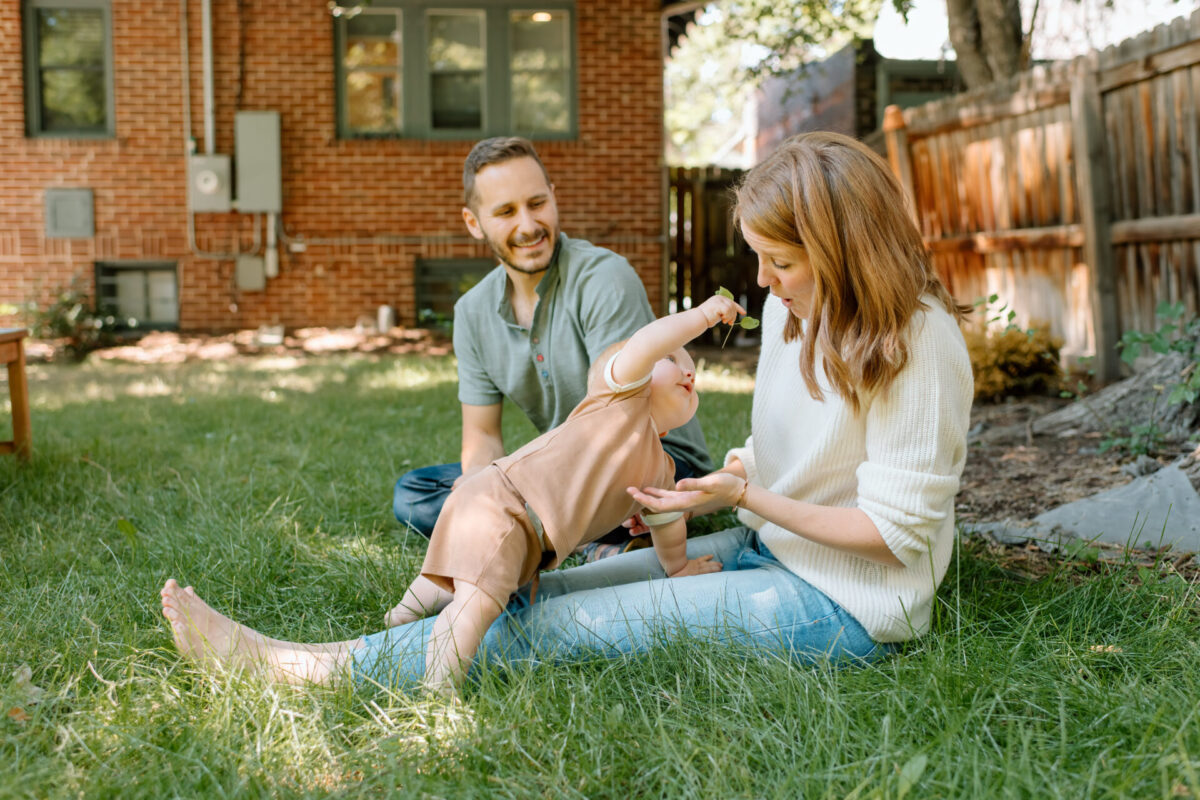
Given my state of unease, a moment of insight took me by surprise. As I walked past a lunchroom full of babbling children, I saw each and every child as an Ari, each child as someone’s unfathomably precious baby. The urgency of deeply caring for and providing these magical beings with quality learning opportunities suddenly became even more pressing. When I later stopped at the grocery store on the way home, the insight broadened even further and I saw each adult wandering the aisles as an Ari—as someone’s precious baby, however long ago they had been born. No one was separate from him.
While I was holding this insight of interconnectedness with tenderness, Owen and I were navigating the reality of new parenthood within the hyper-individualistic, dualistic, nuclear family model pervasive in US culture. The juxtaposition between this felt sense of interconnectedness and the relatively isolated nature of our parenting experience was too hard for us to ignore; it laid bare how flawed, unrealistic, and at times inhumane our US cultural norms around family life can be.
Neither of us have immediate family nearby, and while we both feel deeply fortunate for the incredible and rich communities we are part of, the collective consciousness seems to have imparted in us an expectation that we should be able, willing, and even happy to go at this alone, no matter how exhausted, strung out, or unprepared we are. We are told we are separate families with separate children, and we need to largely handle this immense responsibility by ourselves. The struggle of the absolutely exhausting and relatively isolated first year of parenting is often bizarrely framed in our cultural mythology as an unavoidable rite of passage for new parents, who compare their “war stories” in sympathetic jest.
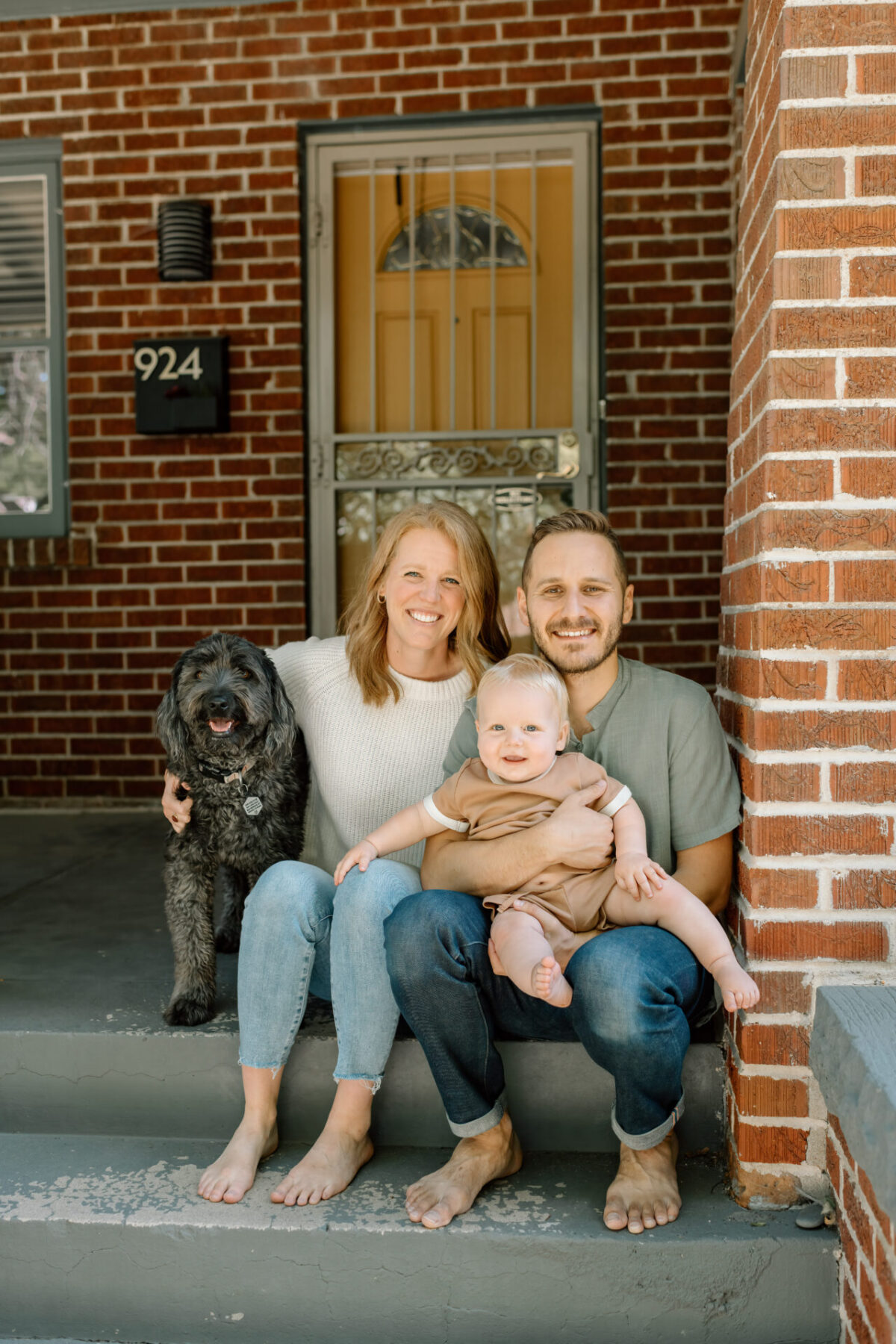
In contrast to our lived experience, we began to dream of the possibility of raising a child within a community of care, one where people lived into not only the practical benefit of supporting one another, but the greater truth of our interconnectedness.
We have come to believe that one of the biggest gifts we can possibly give our child is to imbue his nervous system with a sense of safety in early childhood. That way, as he grows older and inevitably encounters challenges, he will always be able to regulate back to a strongly rooted emotional foundation. Through deeply looking at ourselves and our situation, it became clear that in all likelihood, our siloed, nuclear family existence—as loving as it is—may not allow us to truly offer this to Ari. Without giving him the experience of a safe and nurturing community, how could he come to believe that he himself is safe in the world?
Our guiding question became: How do we stop just talking about this and actually start doing something? How do we start living into a life of a more nondualistic existence? As the practice has reminded us time and time again, and as a piece of paper on our refrigerator regularly reminds us, the how is Now. We take care of the future by taking care of the present moment.
Even before Ari, at times to the surprise and momentary social discomfort of the people around us, we were already experimenting with playfully acting as if a more interconnected way of being were normal and natural, curious what the results would be. When one set of neighbors were down a car, for example, we insisted they use ours to cover their needs for over a year. We regularly help with house projects that could be considered far outside the normal scope of neighborly aid, share our food with those around us, and on the evening of Ari’s first birthday, we had twenty neighbors from our block over to celebrate. In this broader social experiment, we found that many people (after momentary awkwardness or confusion) were more than happy to lean in and reciprocate in kind—all we had to do was act like everything was completely normal.
We have to practice mindfulness as impulses to control, discriminate, and judge arise.
The other dimension of leaning into a more interconnected existence was finding ease in receiving from others. Our cultural narrative had taught us that any help received could be an imposition on others and potentially a breach of a social contract that insists upon our self-sufficiency. To resist this, a family rule we established after Ari was born was: “Say yes to all help that is offered.” By forcing ourselves to say yes to help, we have not only been humbled by the generosity of others, but also by how much help we, as two new parents, actually could use. This has further solidified our feelings that something is amiss in our mainstream cultural narrative.
These practices helped us both see that the seeds of community care and a more nondualistic way of being exist within all of us. Everything we need is here already. But in our society, sometimes we must resist certain cultural norms in order to encourage these seeds to be watered.
Our many trips to Deer Park Monastery to practice with our beloved spiritual family helped reveal the next step on our family’s path toward more nondualistic parenting. When Ari was surrounded by a large community of safe, regulated adults at the monastery, we realized he was experiencing that felt sense of community safety we so wanted for him. We also gleaned some insight into the immense benefits and practical challenges of community life and the importance of our core Plum Village practices in fostering and maintaining harmony in the community.
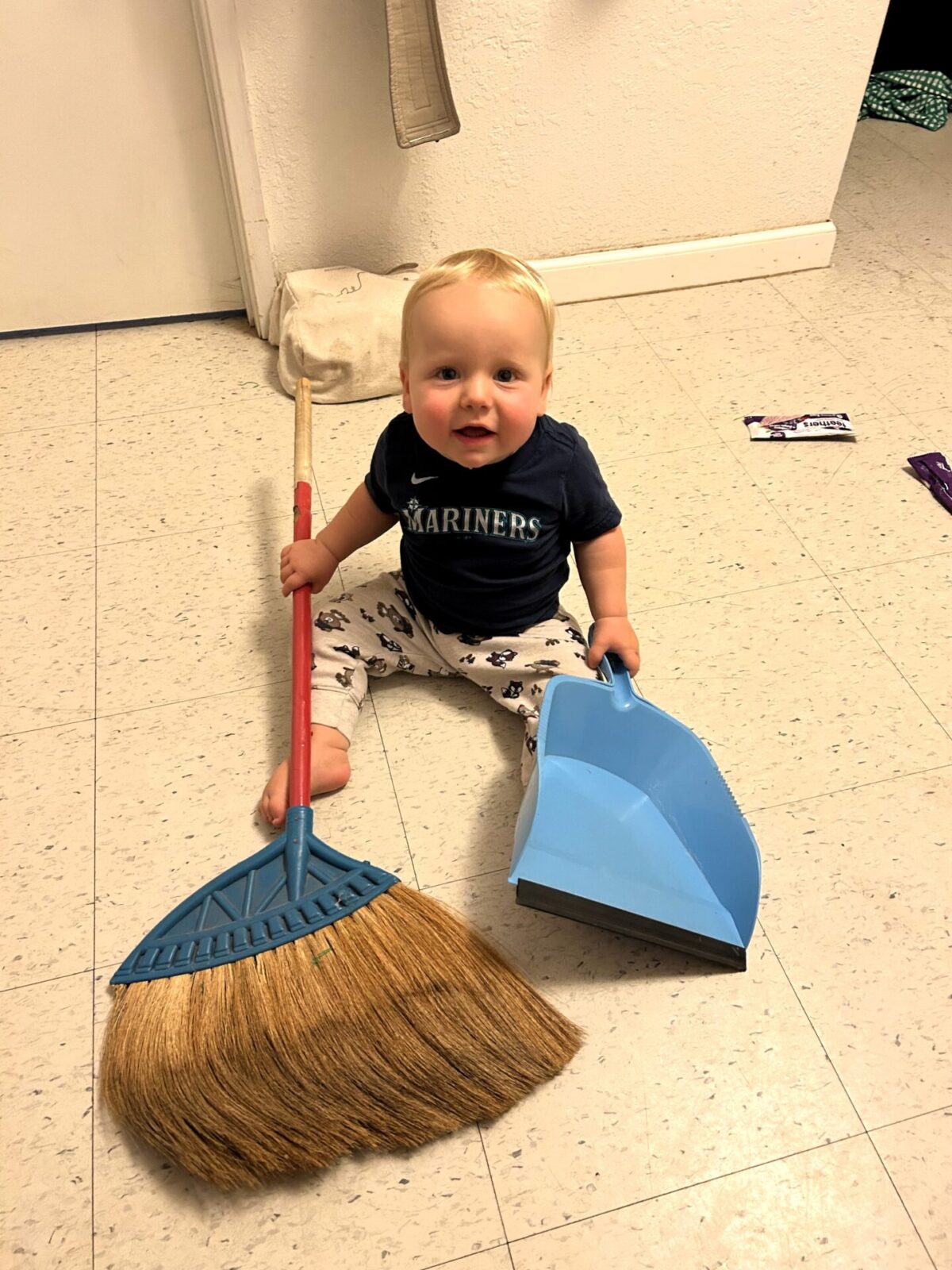
In the spirit of trying to bring a slice of Deer Park back home with us to Denver, Colorado, in December of 2023, we invited a fellow Sangha member to live with us and embarked on a small, humble experiment of community living within our own home—splitting house tasks, cooking and caring for each other, practicing together, and defining family as something beyond the nuclear confine.
While it has been an experience filled with much joy and a deep sense of relief not to be “going it alone,” it has not come without challenges. The seeds of hyper-individualism still exist strongly within us. Personal practice has been vital as we encounter our edges. Having another adult join our home means we can no longer curate our environment to our exact preferences, for example. We have to practice mindfulness as impulses to control, discriminate, and judge arise. We often have had to let go and trust in our abilities to cultivate peace and happiness in ourselves and our community, regardless of whether our preferences are being met. We’ve also had to practice radical transparency, deep listening, and loving speech at our regular house meetings as we water flowers and shine light on challenges that have arisen, all in the spirit of building that felt sense of community safety we aspire toward—not only for Ari, but also for ourselves and our world.
Outside of our home, living into a less separate reality with neighbors from many walks of life has meant practicing open-hearted, non-judgmental curiosity. In previous chapters of our lives, each of us has been guilty at times of waiting around and longing for this thing called “community” to show up, unconsciously thinking that when it arrived, we would have deep personal alignment (if not a “soul connection”) with every single person involved. Through our time spent both at Deer Park and engaging with our communities here in Denver, we have realized that community can take so many different and rich forms, and that we need to let go of our incomplete conceptions of what it means or should look like.
Right Diligence has helped us notice when we are watering seeds of separation with our thoughts and, without suppressing or shaming them, choose a different path by turning toward thoughts that water seeds of kindness, compassion, and interconnectedness.
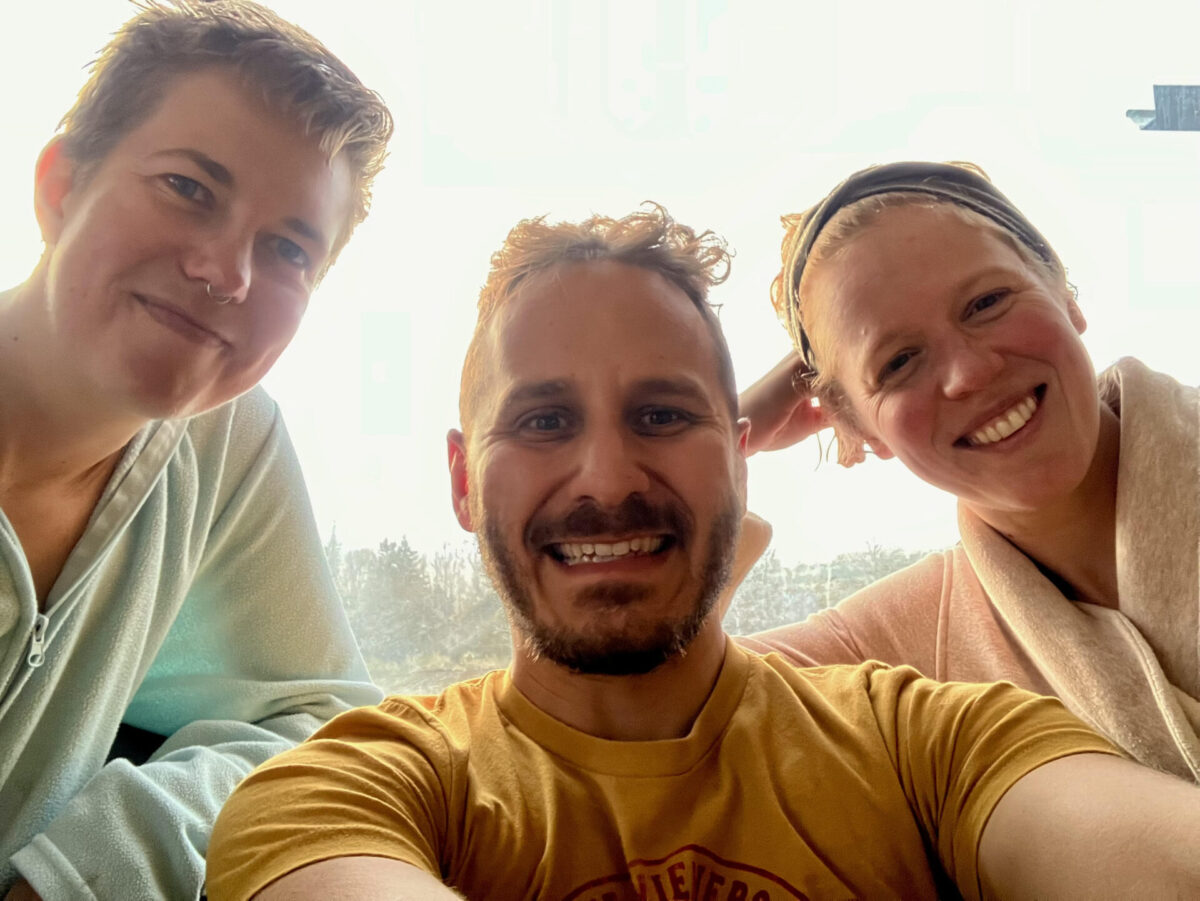
Our focus on building community and connection has subsequently involved continuously showing up and offering care in small and thoughtful ways to those around us, cultivating relationships slowly with presence and patience, letting go of expectations, and allowing each relationship to be exactly what it needs to be in any given chapter. This new approach has allowed relationships—including those with people we might not have normally connected with—to blossom in lovely and unexpected ways.
As we sat down recently with a new neighbor and her children and listened to stories and strongly-held beliefs significantly outside of our own life experiences, we both had to actively practice Right Diligence by watching thought patterns arise that wanted to discriminate between “our family” and “theirs,” “our worldview” and “theirs.” Right Diligence has helped us notice when we are watering seeds of separation with our thoughts and, without suppressing or shaming them, choose a different path by turning toward thoughts that water seeds of kindness, compassion, and interconnectedness. We have recognized through this practice that we do not need to be best friends with everyone to raise children in a harmonious community with them. We just need to be known to one another, to show up with care for each other and our children, to build trust over time, and to practice looking past surface level judgments that reinforce our perception of separateness.
Nondual parenting, to us, is about so much more than our relationship with our child. We cannot separate that relationship from our relationship with each other, from our relationship with our neighbors and larger community, or from our relationship with the world. Nondual parenting feels inseparable to us from nondual living, and we aspire to take small steps to live into it every day.
